2025 Self-Advocacy Conference Recap
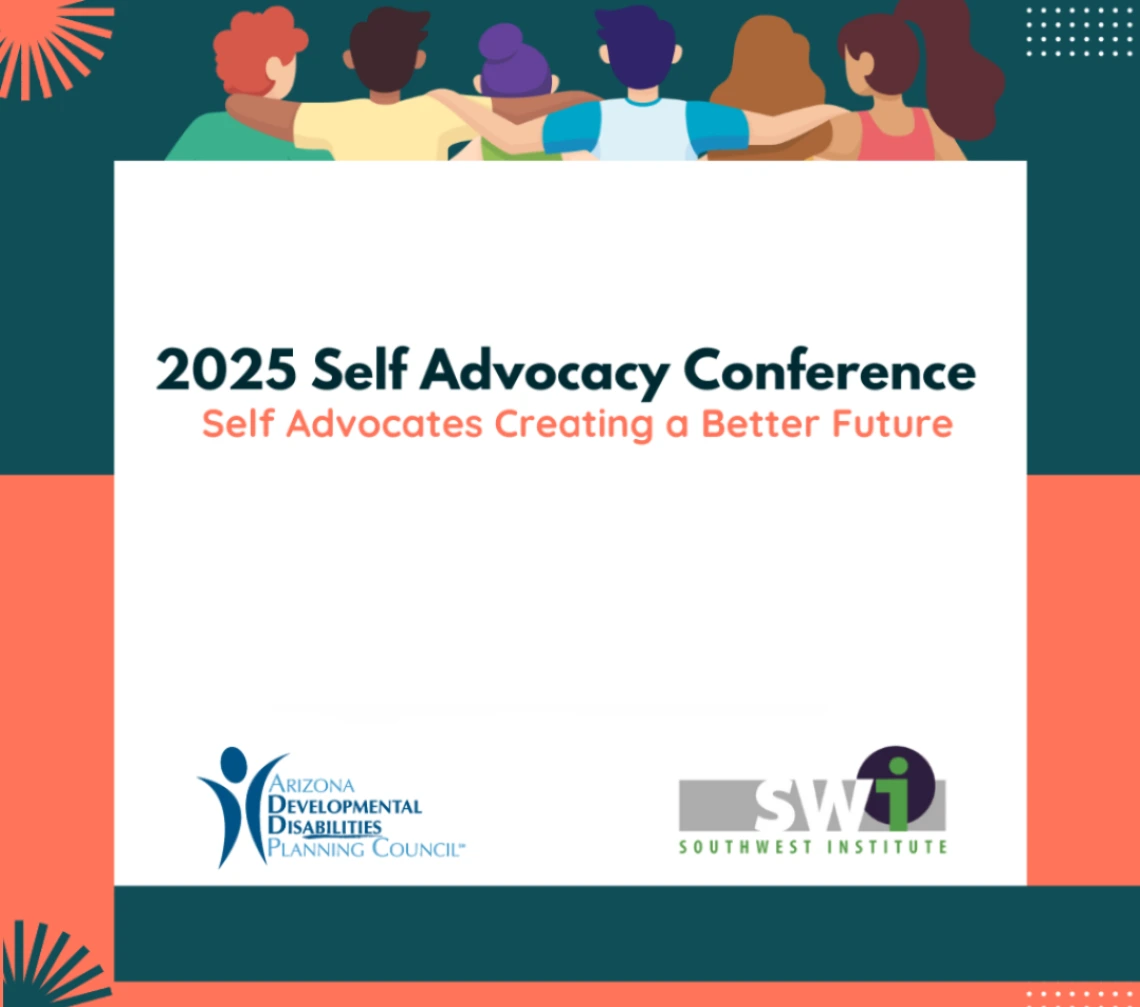
By Drew Milne
The Sonoran Center is proud to have been a part of the 2025 Self-Advocacy Conference. Taking place remotely on May 17, 2025, the conference was presented by the Southwest Institute for Families and Children with support from the Arizona Developmental Disabilities Council. It aims to provide a forum to address the issues facing the disability community.
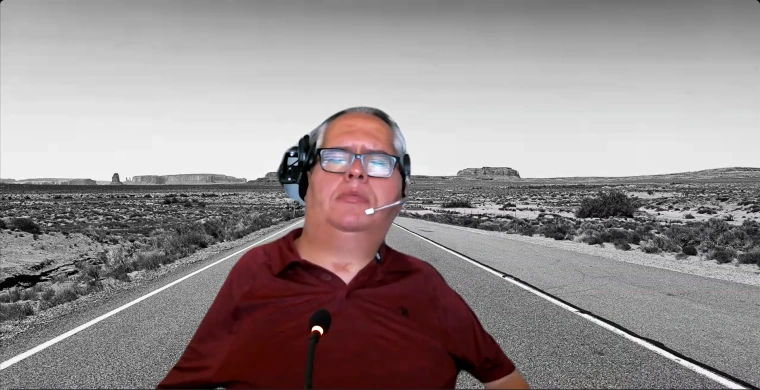
George Garcia opens the conference with introductions.
After George Garcia opened the day with introductions, the conference began in earnest with an opening panel discussing the past and future of the self-advocacy movement. The panelists included Nicole Patterson from Sacramento, California, Emmanuel Jenkins from Greenwood, Delaware, and Julian Wang from Fort Collins, Colorado.
“The self advocacy movement for me means that we are living our best lives and helping others to do the same,” said Patterson.
The panelists went on to discuss the specific challenges of the self-advocacy movement in their respective states.
Next, the Sonoran Center’s Gabe Martinez and Loretta Alvarez shared job-seeking tips with a focus on people with disabilities. They emphasized the importance of research, networking, and knowing one's rights under the Americans with Disabilities Act (ADA).
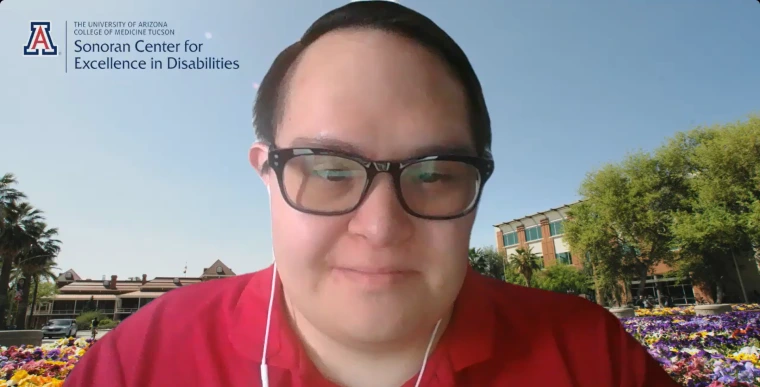
Gabe Martinez discusses job hunting.
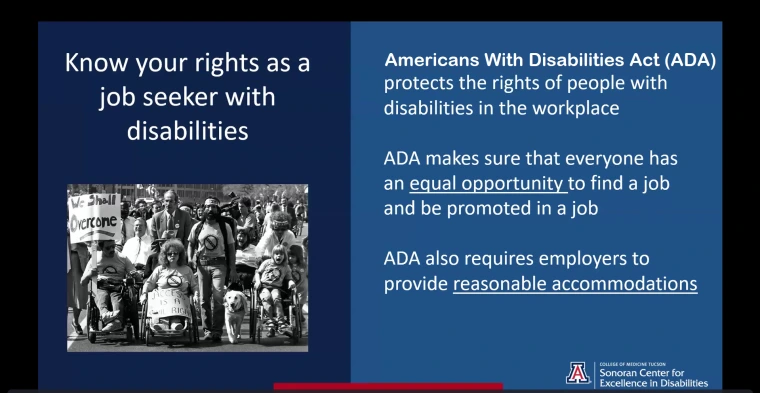
A slide from Gabe and Loretta's presentation.
“The ADA makes sure that everyone has an equal opportunity to find a job and get promoted in a job,” Gabe explained.
“A lot of times. People think reasonable accommodations are things that happen after you get hired, but you can request accommodations as part of the interview process,” Loretta noted.
Loretta highlighted the significance of a professional resume, including relevant experience, skills, and passions, and stressed the importance of selecting appropriate references. For those who do not have previous work experience, teachers, volunteer coordinators, and coaches can be excellent references.
“They know your work experience. They know how you work and learn. They've seen the work that you can complete,” Loretta said.
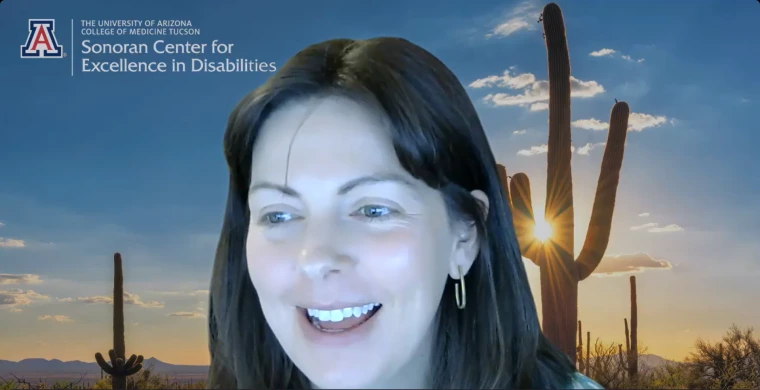
Loretta discusses job hunting.
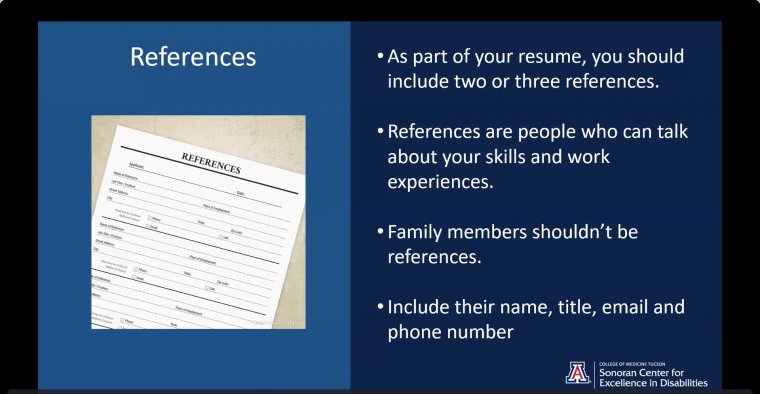
Another slide from Gabe and Loretta’s presentation.
Gabe and Loretta discussed the value of networking in job searches. Gabe shared his experience of finding a job through a connection at a hospital.
Their presentation concluded with Sonoran Center Project Assistant Pavleena Madhivanan sharing her perspective on job seeking as a person with disabilities:
“If you're not sure what kind of job you want, observe as you are out and about. What kind of work do you see? Do you see any job that you would like to do?... Remember, you got this. You got the power!”
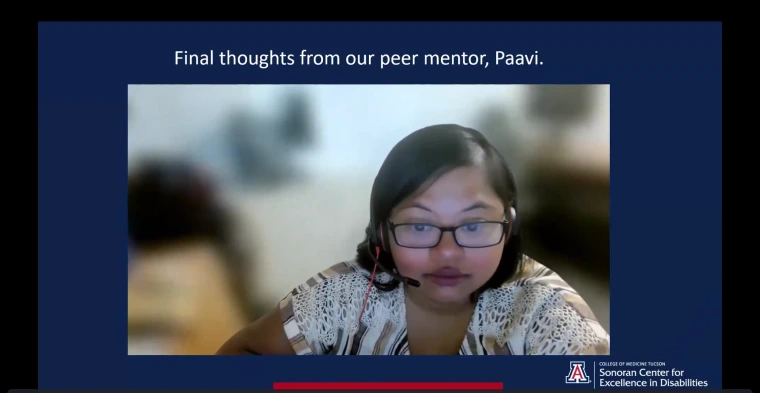
Paavi Madhivanan speaking in Gabe and Loretta’s presentation.
After Gabe and Loretta’s presentation, the conference continued with a variety of presentations and discussion opportunities.
Brittany Chipley (AZ ABLE) and Jason Snead (AZDES) presented on AZ ABLE (Achieving a Better Life Experience) accounts - a state savings account program that allows people with disabilities to accumulate wealth and control their finances without jeopardizing their eligibility for assistance programs.
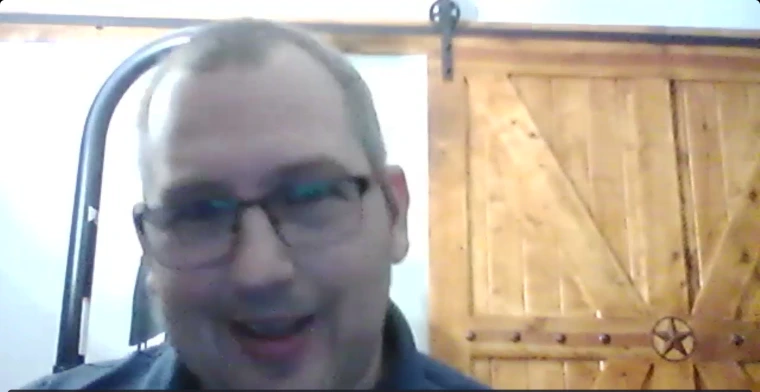
Jason Snead presenting on AZ ABLE accounts.
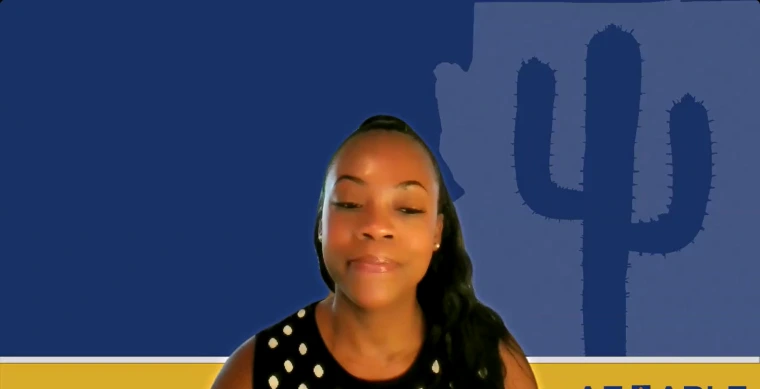
Brittany Chipley presenting on AZ ABLE accounts.
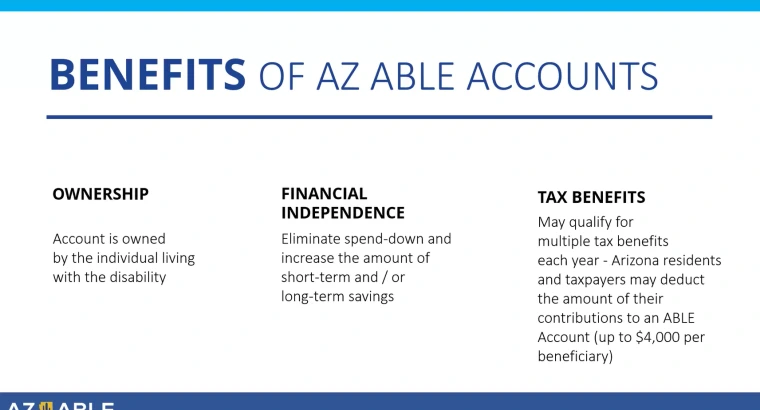
A slide from Jason and Brittany’s presentation.
George Garcia (SWIFC) and Danielle Duarte (VOTERIDers) provided an overview of voting rights for people with disabilities in Arizona, including accommodations.
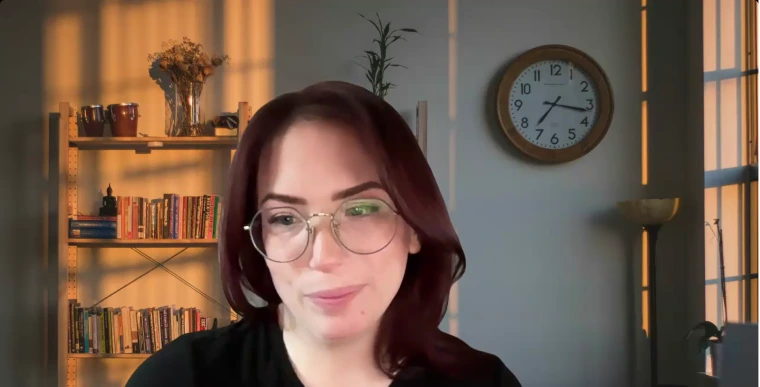
Danielle Duarte presenting on voter ID laws.
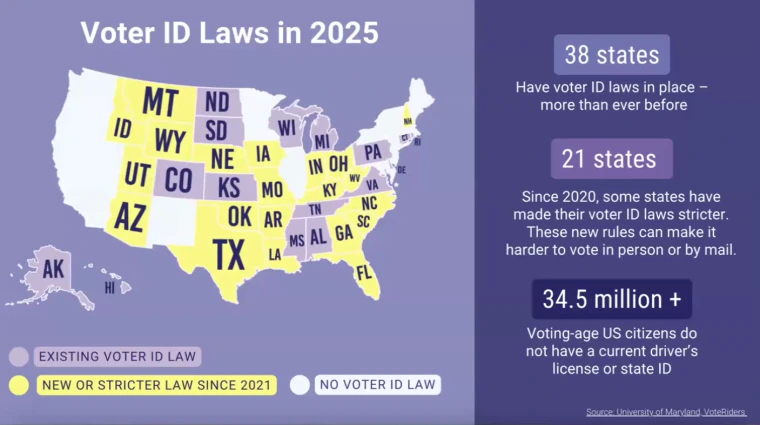
A slide from Danielle and George’s presentation.
Next, young adult leaders Audra Paletta and Isaac Zwinger-Nathanson from DiverseAbility Incorporated led a session for participants to learn, practice, and engage self-advocacy skills. This session included short videos, discussion, and role-play activities.
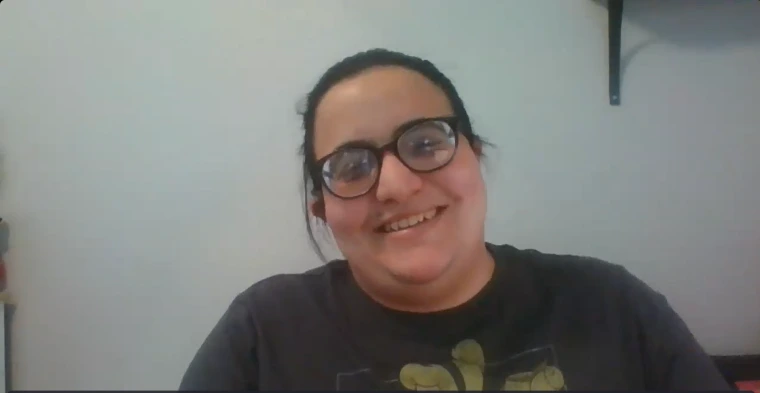
Audra Paletta leads a role-play scenario about self-advocacy in the workplace.

Isaac Zwinger-Nathanson presents on self-advocacy skills.
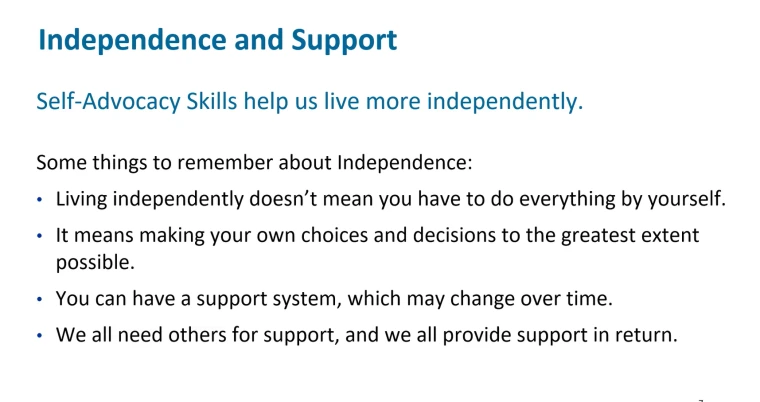
A slide from Isaac and Audra's session.
Then, Elton Yazzie, president of the Northern Arizona Tribal Dispute Coalition, shared the group's history and advocacy efforts, including their collaboration with various organizations and initiatives.
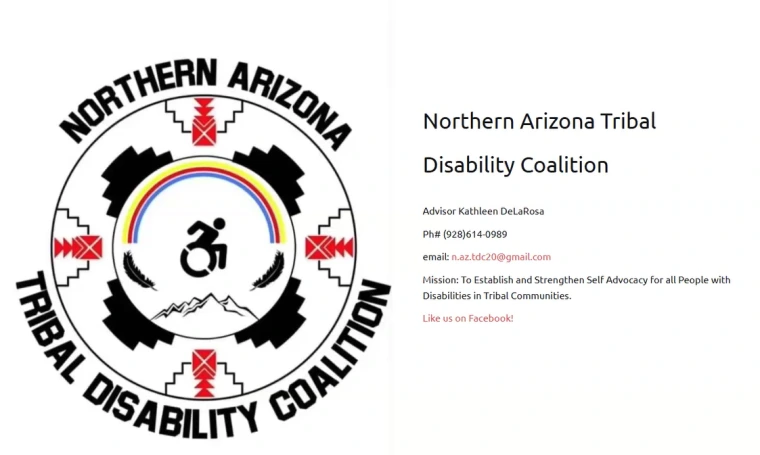
A slide from Elton’s presentation.
The Sonoran Center would like to thank everyone who played a part in making this conference a success!
